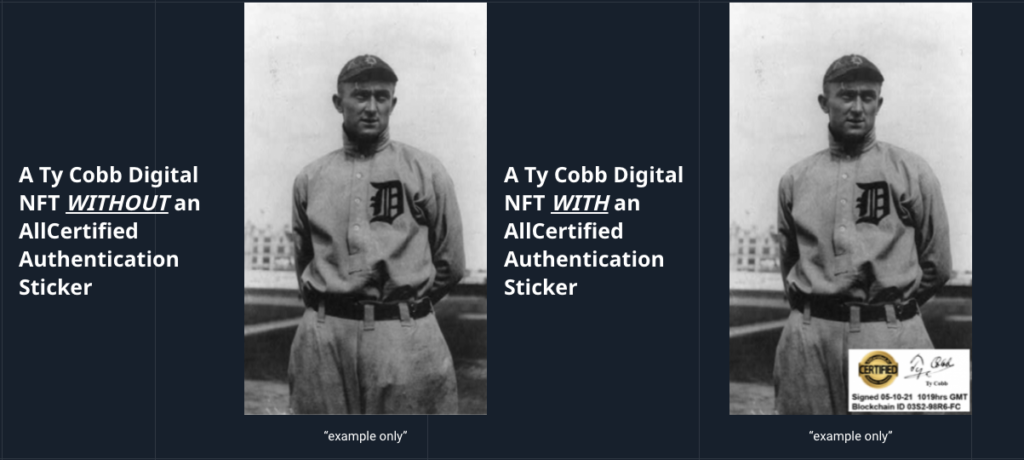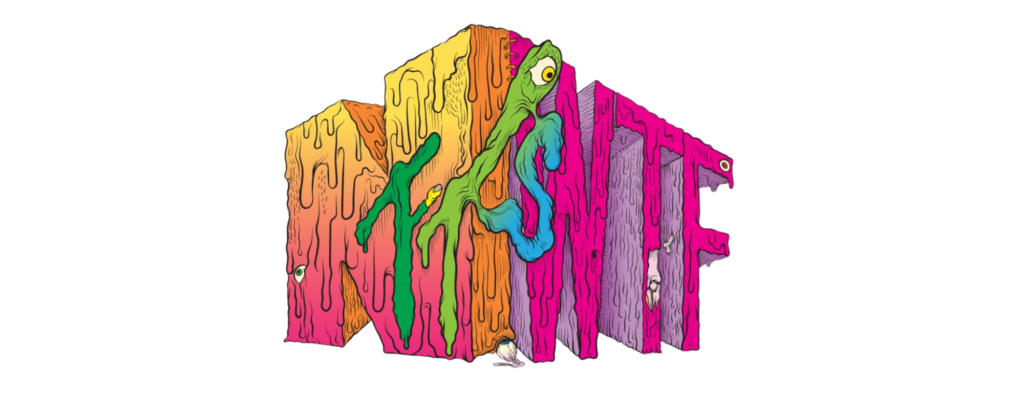In the world of physical collectibles, especially sports memorabilia, the autograph of a star, even a small one, can radically increase the value of a sports card or piece of equipment. While blockchain data provides provenance, mainstream collectors may not find that nearly as satisfying as the symbolic human element of NFT signatures. AllCertified is one of an emerging group of services focused on adding verifiable digital autographs to collectible NFTs.
AllCertified – NFTs Verified by Humans
AllCertified founder Michael Eckstein, in an interview for NFTS WTF, discussed the NFT autograph solution he and his company are developing. The basic concept is that celebrities and stars are onboarded and verified. Then NFTs with affixed signature stickers are created for distribution. Since AllCertified has no plans to develop a competing NFT marketplace, the celebrity’s team can then distribute the NFT as they wish to the growing range of options from open marketplaces to celebrity-focused platforms.
While proprietary patent-pending technology is involved, their key is human verification of the celebrity’s identity allied with all critical choices being made by the celebrity from pricing to which NFTs to mint. AllCertified can also suggest images for NFTs and can even take existing NFTs to use as the basis for new NFTs with affixed signatures. If celebs wish, they can sign into AllCertified by phone to approve NFTs and even upload content on the fly.
AllCertified’s Roots in Sports Memorabilia
Eckstein revealed that AllCertified‘s initial market is sports, followed by five target markets: movie studios, TV and streaming services, music, art, and social media influencers. Given the current growth of the sports memorabilia movement and the remarkable power of a verifiable autograph to raise the value of such memorabilia, it’s not that surprising that AllCertified is starting there. However, there is a more personal dimension to that choice which Eckstein shared:
“I have been a sports memorabilia collector for many years…And every time I went to a sports memorabilia show, I was one of the guys in line to get the autograph of the person whose baseball card I had.”
“When NFTs started to move forward, I saw what an amazing upside potential this was. Literally, in the middle of the night, I woke up, and I said, how about the ability to have the sports personality not just be limited to physical presence to sign at a show? How about giving them an authorized blockchain-certified way to look at somebody submitting an NFT and then being able to affix their signature sticker to that. And that’s how the idea was born.”
According to Eckstein, AllCertified is already receiving a strong, positive response. Sports card dealers are also very excited by the idea and would love to be able to take their inventory, create digital images, add the appropriate signatures and create a valuable NFT. Dealers could make quite a bit of revenue, but Eckstein had a disappointing message for most of them. AllCertified will only be working with such companies as Upper Deck and Panini that have direct relationships with athletes. In addition, the company’s commitment to verifiability and celeb control ultimately limits who will be able to use their services.
NFT Signatures Likely to Get Hot
NFT signatures seem likely to be an especially relevant offering in industries in which celebrities have huge fan bases, such as athletes, tv and movie stars, and social media influencers, and may want to put out specific NFTs in large numbers. Signatures provide a means to make them all seem a bit more special and can also provide an option for a limited signed edition being released along with a larger unsigned edition. Of course, a much broader range of use cases will be developed over time.
And as those use cases develop, new competitors will enter the game. One entrant in the NFT Signature space, AutographNFT, is further along with its approach which takes a very different direction. AutographNFT starts from the collector’s side with an already existing NFT for which collectors can request a signature. The NFT creator’s identity is verified through Twitter and, if approved, the original NFT is wrapped in a synthetic NFT, dubbed an “aNFT,” which is essentially a new ERC721 NFT tradable on open markets.
AutographNFT‘s use of Web 2 identity verification is an intelligent approach but also seems likely to have a level of direct outreach behind the scenes. Whether or not that’s the case, the use of what is essentially a removable wrapper, with the ability to restore the original NFT, is likely to be an appealing option.
The Human Element
In many ways, one can think of Web 3 as an attempt to code humans out of the picture as much as possible in the service of creating excellent tools for humans. Companies like AllCertified and AutographNFT remind us that the visible presence and involvement of humans, especially individual celebrities, is a powerful force that fits digital collectibles well. But it does seem likely to require a lot of upfront expense that can’t be automated away. In the case of NFT signature companies, victory will go to those who can combine the most appealing technology for mainstream users with the strongest connection to celebrities and their representatives.
Featured Image Courtesy AllCertified



